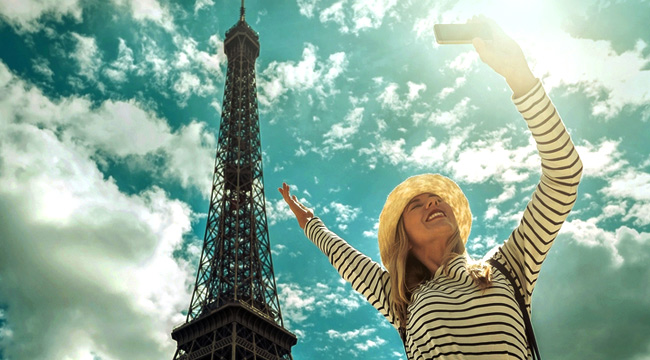
Travel has always been a bit of a sport. The Grand Tour of Europe was all the rage back in the 19th century. People begged, borrowed, and stole to get onto the maiden voyage of the Titanic. A generation got lost in the bars of Paris and Berlin in the roaring 20s. Cassady, Ginsberg, and Kerouac went ‘On the Road’ in the 50s. Intrepid wanderlusters braved the furthest reaches of Asia to trek the Hippy Trail in the 1960s. Most came home with stories of lust on the streets, drug dens, knife fights in back alleys, and parties that would never exist again … until the next generation came along.
What separates us from those iconic travelers and their epochs? Social media. A new study at the University of Georgia gathered 758 people and asked them why they wanted to travel to Cuba and it seems that most people were all about those “likes.”
This isn’t exactly new ground, of course. Why we travel has been studied extensively before. We know there’s always been an intrinsic social currency to having the means and nerve to travel. So, it should come as no surprise that with the advent of social media based on a reward system of likes and follows, that travel, too, is affected — according to this new (very small) study.
The meat of the study asked travelers when they were thinking of going to Cuba and why. Those who answered within the next year tended to buy into the (erroneous) notion that Cuba was isolated from outsiders and this was the first chance to go and get those hashtags before the “McDonaldization” of the place. Whereas people who planned to go in the next five or ten years didn’t really seem to care about their social media feeds and more about the history and culture of the island nation. The research paper puts it this way, “the symbolic value of social media posts about travel experiences has a greater influence on intentions to travel in the short-term compared to the long-term.”
The research goes on to point out that “destinations with high social media potential could take advantage of the ‘bandwagon effect’ and the ‘snob effect’ as they wax and wane in popularity.” That is all just to say: #FOMO is real — which we already kinda knew. As we mentioned above, hitting the trendiest travel destinations on the planet is a long-held tradition of the wanderlust community. So before we jump to judgment about anyone wanting to head off to Havana — or the next social media influenced hotspot — we should remember that it’s always kinda been that way.
The only real difference now is that there are social media influencers making billions by posting pics to get you there.






